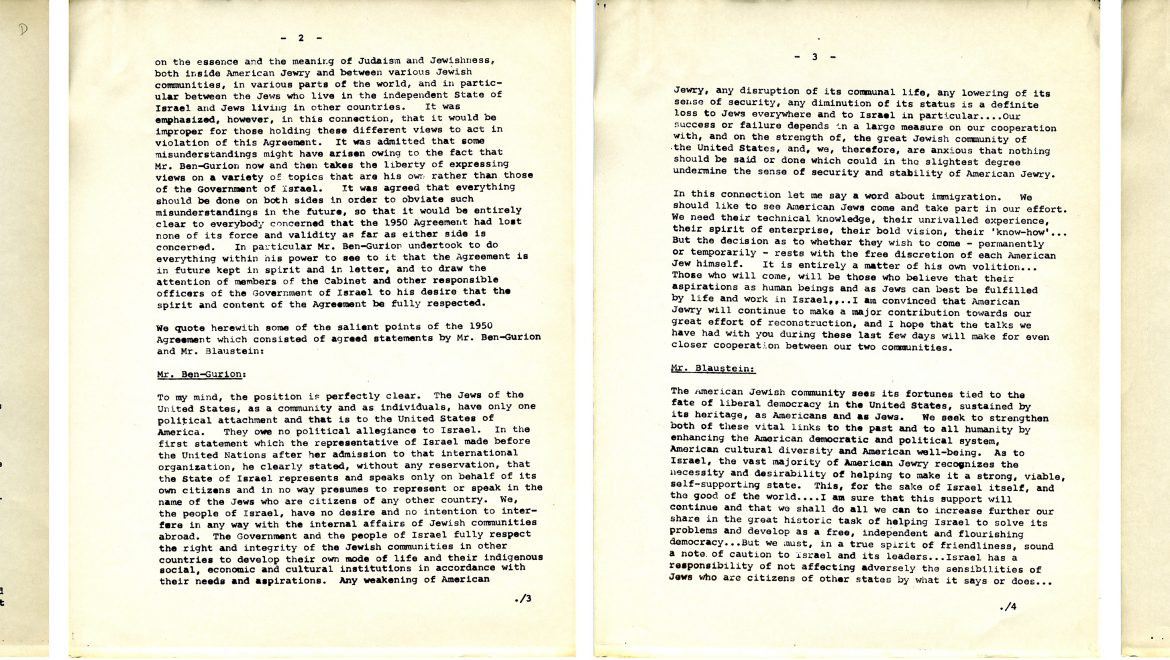
This is what’s known as the Blaustein-Ben-Gurion Agreement — a most significant document in the development of Israel-Diaspora relations.
Between the years of 1948 and 1952, when the image of the State of Israel was shaped and consolidated, friction developed between the leadership of the American Jewish Committee and the Israeli government. On one side stood American Jewish Committee chairman Jacob Blaustein, and on the other, Israeli prime minister David Ben-Gurion.
Ben-Gurion supported traditional Zionism, which in effect expresses the political and national aspirations of the Jewish people and calls on all Jews to immigrate to Israel to fulfill these aspirations, or, at the very least, to support the Zionist Organization.
By contrast, Jacob Blaustein, president of the American Jewish Committee, believed that the Israeli government must navigate a path of acceptance, recognizing of the independent and autonomous status of American Jewry as an integral part of civil society in the United States — a position that the State of Israel must respect and appreciate.
The negotiation that took place between Blaustein and Ben-Gurion between 1948 and 1950 was quite simple and expressed a deep and fundamental gap between Israeli and American Jewry. They ended with no less than a written agreement with far-reaching statements by the Israeli prime minister of Israel’s interest in the existence (and all surrounding aspects) of American Jewry. Ben-Gurion agreed not to intervene in American Jewish affairs, and officially recognized the American Jewish community an equal partner in the plight of persecuted Jews in the world. The agreement was signed in August 1950 was undoubtedly a victory for the American Jewish Committee.

